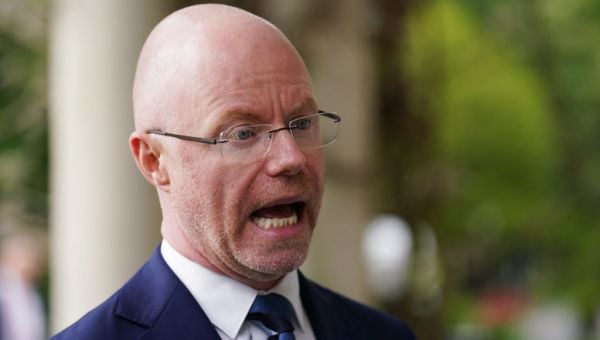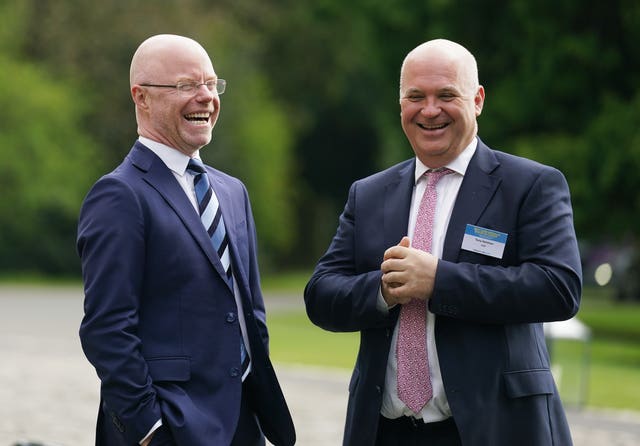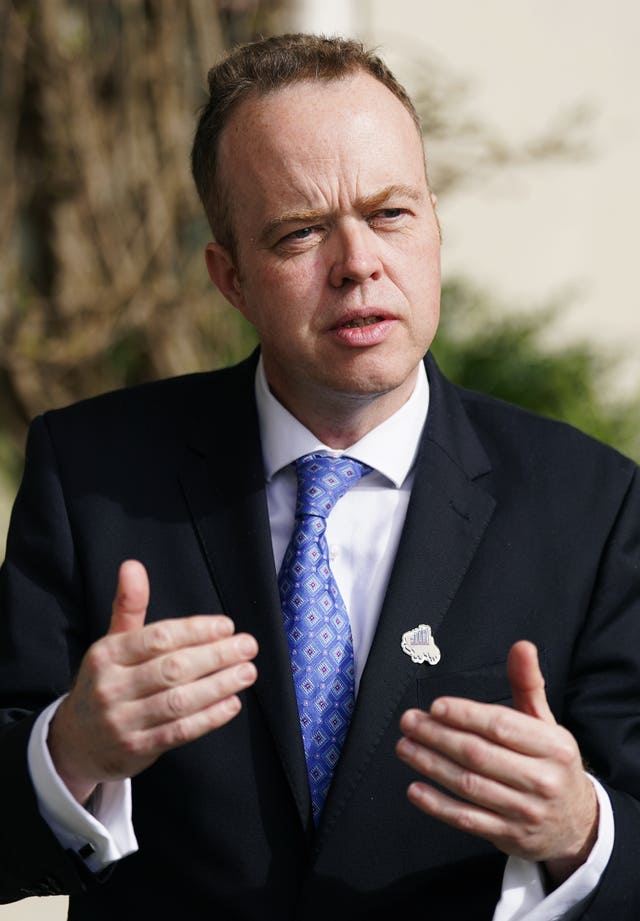
By Cillian Sherlock, PA
Ireland is a “laggard” when it comes to clinical trials for cancer treatments, the Minister for Health has said.
Stephen Donnelly made the remarks as world-leading healthcare experts gathered in Dublin for a conference aimed at accelerating US-European co-operation on tackling cancer.
Addressing the event, Mr Donnelly said there was “an awful lot more” Ireland needs to do in terms of cancer care, including introducing unique patient identifiers.
He said: “We’re a laggard in clinical trials. We talk a good talk in clinical trials. The reality is we don’t have the infrastructure we need.
“We don’t have the unique patient identifiers. We don’t have decent e-health systems and there is other infrastructure that we need to have in place.
“We shouldn’t be a laggard in clinical trials, we’re one of the wealthiest most advanced countries anywhere in the world.
“We are seeing huge success in terms of cancer survival rates, new advanced technologies but Ireland must be a leading country in clinical trials.
“We have a massive pharmaceutical industry here, we have a massive biotech industry here and we’ve a big digital hub.
“We have all the bits we need and so shortly I’ll be bringing forward a new health information bill that will have the unique patient identifiers.”
Mr Donnelly also said Ireland needs to join more research networks.

The inaugural Joint Euro-American Forum on Cancer, which began at Farmleigh House on Thursday, had a particular focus on inequalities in care.
It was jointly hosted by the Irish Government’s Department of Health, the All-Island Cancer Research Institute (AICRI) and the National Cancer Control Programme, in collaboration with world-renowned cancer organisations from the US and Europe, including the European Cancer Organisation, the US National Cancer Institute, the American Society for Clinical Oncology and the European School of Oncology.
Asked about a geographic disparity on access to cancer services across the country, Mr Donnelly told reporters that it was the case around the world that lower-income households had worse health outcomes.
However, he said the Department of Health is careful to provide balanced investment as it worked to provide the best treatments at regional centres.
“It is something we are working very hard to tackle,” he said.
“In terms of preventative care, we’ve invested a lot in healthy communities, in bringing public health supports into communities where there are lower-income levels.
“As well as that we want to make sure that people have access to general practice, primary care and advanced medicines.”

When it comes to cancer services, he said dedicated centres were working and were the agreed national strategy.
He said: “In the last three years, the number of people living beyond cancer – who had an invasive cancer diagnosis – has increased by more than 40 per cent.”
He added: “It doesn’t mean people don’t have to travel, they do need to travel to designated cancer centres because that gives us the best outcomes.
“But we want to make sure that there is good regional availability of all of those services.”
Over the last three years, the AICRI has brought together cancer researchers from across 10 academic institutions across the island of Ireland in an effort to ensure optimal health outcomes and wider societal benefit.
AICRI co-lead and UCD Professor William Gallagher said co-operation on cancer research and care between Northern Ireland, the Republic of Ireland and the US was a “health dividend” of the Good Friday Agreement which also resulted in increased survival rates.
“Over 35,000 patients were able to participate in clinical trials that wouldn’t have happened if that tripartite consortium hadn’t come together,” he said.
“That has had a significant impact in terms of access to new and innovative treatments.”

